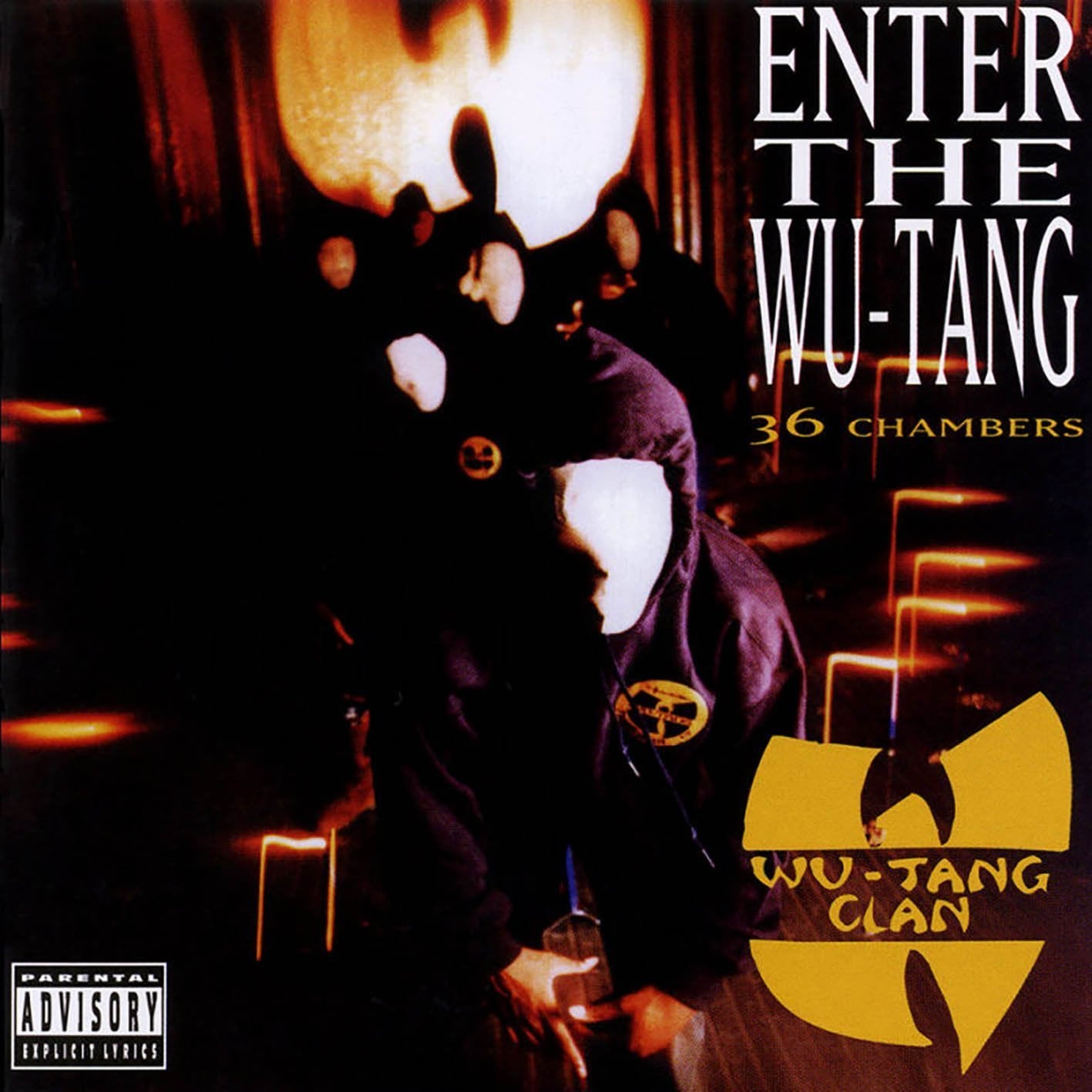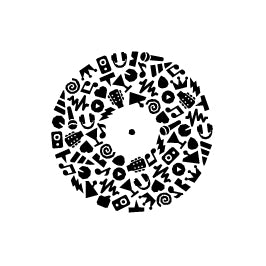10 ulubionych albumów rapowych naszych pracowników z lat 90-tych
Lata 90. były złotym okresem dla rapu na wiele sposobów, ale szczególnie w formacie albumu: Rap jako muzyka skoncentrowana na albumach naprawdę osiągnął szczyt w latach 90. Wybór 10 albumów z tej dekady na pewno pozostawi wiele w pokoju montażowym, ale nasz zespół zrobił wszystko, co w naszej mocy, aby wybrać 10 wydania zatwierdzone przez VMP.

A Tribe Called Quest: Midnight Marauders
Midnight Marauders is a rap album that lives on as a New Testament scroll, documenting a peak of the East Coast from the vantage of men in the center of eight million stories. Afrocentric at heart and comedic at core, there’s simply nothing like hearing Phife and Tip in perfect sync over the perfect blend of jazz-and-soul. It’s ATCQ never folding under their own hype, rising up to not only push their mellow foundations, but elevate everything around them: the lyrics, the flows, the samples. It’s a masterclass on rapping from the heart without wiping one’s humanity out the frame; Tribe kicks knowledge, game, and everything one needs to survive a wicked world. — Michael Penn II

Lauryn Hill: The Miseducation of Lauryn Hill
Ms. Lauryn Hill’s solo debut in 1998 following her departure from Fugees, was, in every sense of the word, a force — and a fairly unlikely one in contrast to other smash hits of the time. Lauryn Hill took matters of the heartbreak, motherhood, the body, sexuality, oppression, womanhood, even her tumultuous creative history, and elevated them to a realm of the spiritual, while also managing to achieve unprecedented critical and commercial acclaim (the album debuted at No. 1 on the charts, went multi-platinum and won a staggering five Grammys). Blending pop, R&B, reggae, and hip-hop, time has proven Miseducation one of the most influential albums of the past 30 years, with nearly everyone from industry giants to bedroom creators citing Hill, and this album, as a never-ending source of inspiration. — Amileah Sutliff

UGK: Ridin’ Dirty
While Outkast’s explosion into the pop sphere legitimized southern rap in a way that seemed inconceivable during the East Coast-West Coast beef years, UGK’s masterpiece third LP Ridin’ Dirty was the Big Bang, a widescreen street-rap masterpiece. Produced mostly by Pimp C himself, our heroes avoid capture with dope in the trunk over flips from the Isley Brothers, Curtis Mayfield, Isaac Hayes, Fatback Band, and (checks notes) Pink Floyd, capturing paranoia, pomposity, and pain in equal doses. The Trill O.G.’s were born here, and all southern street rap came in its wake. — Andrew Winistorfer

Wu-Tang: Enter The Wu-Tang (36 Chambers)
On paper, the debut LP from the Wu-Tang Clan makes no sense. Take nine M.C.’s, some of whom failed out of indie-rap deals (RZA, GZA), some of whom who had never really rapped before (O.D.B.), verbal technicians (Inspectah Deck, Ghostface Killah, Raekwon), a vulgar, hilarious superstar in the making (Method Man), and two friends from Stapleton (U-God and Masta Killa), and have them rap over beats pulling from Grindhouse and Kung-fu movies, and have everything tie back to the principles of Supreme Mathematics. Somehow, that added up to one of the best rap albums of all time, and launched nine solo careers, and sold millions of copies. Wu-Tang is the only rap group to harness an entire baseball-hitting rotation into one goal, and certainly nothing else will come close. — AW

Lil Kim: Hard Core
Hard Core, Lil’ Kim’s debut album, didn’t just make her the first female rap artist to chart with three consecutive No. 1 singles, nor did it just land her a Grammy nomination and prove her an instant force to be reckoned with — although it did do all of that. Hard Core lit taboos on fire and did unspeakable things to their ashes. Never before had the world seen such raunch, salaciousness, and down-right unadulterated sexuality from a widespread hip-hop debut — let alone a woman’s — and certainly not one powered with such unapologetic confidence and finesse as Lil’ Kim. What’s more, not only does it hold up, it might even have a similar bravado and shock value if it were dropped today as it would 25 years ago. All that to say, Lil’ Kim walked so basically all of your fave Queen Bitches could run. — AS

Dr. Dre: The Chronic
If one wants the quintessential West Coast / L.A. crew album, The Chronic is a mandatory text. While Dre’s trademarked G-funk carries the journey through everyday struggles, it’s truly a group effort, especially the works of an early Snoop Doggy Dogg en route to becoming a superstar. The album rides out like a blunt cruise through Compton, complete with the prescribed perils: relationship issues, ducking crossfire, and a dissection of all things G-shit. It’s timely and timeless, powered by the haziest samples, punching strings, and the firepower from a lingering conflict. This classic set the stage for another strain of ’90s change that shifted rap for all eternity. — MPII

Da Brat: Funkdafied
Sometimes we get lucky and the universe comes together to bring us the good shit, or perhaps the best just has a way of rising to the top. Regardless, either could be true of Da Brat’s divine debut, which came about after Chicago’s young Shawntae Harris won the chance to meet Kriss Kross in an MTV-sponsored talent contest. Kriss Kross introduced her to Atlanta producer Jermaine Dupri, and the rest was history. In no time, Dupri and Harris birthed a concise half-hour of g-funk, inspired by West Coast sounds, but often veering into a lane entirely her own. Equal parts fresh, fun and brazen, Funkdafied made Da Brat the first female solo rapper to go platinum, and is still a blast to listen to front to back over 25 years later. — AS

Camp Lo: Uptown Saturday Night
Hip-hop was born in the Bronx in the early-’70s, and in the post-Biggie NYC, Brooklyn and Harlem became the pillars of the East Coast. But in 1997, a duo from the genre’s birthplace rose from the BX with a flair of dexterous toasting raps over dusty jazz and blues loops. Sonny Cheeba and Geechi Suede do acrobatic raps over Ski Beatz beats, letting the chopper sing on their similes and metaphors and Merriam-Webster. It was out of step with the Jiggy-era, but it did launch one weird hit single (“Luchini AKA This Is It”), and it remains a classic of the form, a sore thumb of NYC ’90s rap that sticks up to generations of people who want one of the most distinct rap debuts to ever exist. — AW

Missy Elliott: Supa Dupa Fly
While maneuvering the game by penning and performing on many ’90s hits, Missy “Misdemeanor” Elliott tapped in with Timbaland for two weeks with one goal: show and prove why the magic got her an imprint in the first place. The rest is near-mythical now: Supa Dupa Fly remains an unparalleled platinum-certified collection of Elliott’s undeniable range as a songwriter, vocalist, and visionary. Bop after bop, from a Timbaland that keeps his programming on the pulse of the future, and Missy: a big, fly Black woman who demanded respect and to be loved the right way. Not to mention how the album enlists some of the ’90s’ brightest for a certified hit parade… such irresistible history. — MPII

De La Soul: De La Soul is Dead
Once the Long Island trio found themselves catapulted into a stardom no one expected — and a hippie-ish status they rejected — De La Soul responded to the polarization of their lowkey absurdities by remixing their ethos and choosing to grow. De La Soul is Dead extends the De La tradition of leaning into the unexpected: it’s pointed and hilarious, with the right sense of maturity to know where the jokes end and the truth extends. It’s often painted as the group’s dark turn, which only proved half-true: the lightheartedness remains intact throughout, only strengthened by the newfound depths of their content and the industry bitterness that fueled the album’s arc. And… De La revolutionized the album skit with this one! — MPII
Related Articles
Dołącz do klubu!
Dołącz teraz, począwszy od 44 $Ekskluzywna 15% zniżka dla nauczycieli, uczniów, członków wojska, profesjonalistów w dziedzinie zdrowia & pierwszych ratowników - Zweryfikuj się!




